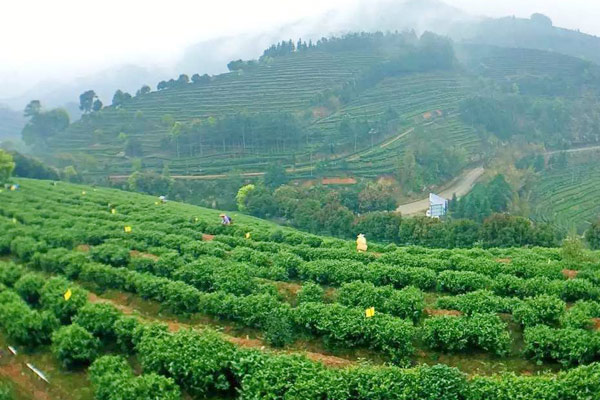 |
|
Yellow sticky papers at the Zhang Tianfu Ecological Tea Plantation in Ningde city, East China's Fujian province, March 22, 2016. [Photo provided to chinadaily.com.cn] |
A traditional tea-growing region in East China with a 1,000-year history is undergoing fast growth after further developing natural advantages and introducing new technologies.
Tea production in Ningde city, East China's Fujian province, dates back to the time before the Tang Dynasty (618-907AD), according to The Classics of Tea, by Lu Yu, a tea expert in the Tang Dynasty.
Nowadays, Ningde city, located in eastern Fujian province, boasts a tea-growing area covering 686.6 square kilometers, accounting for nearly one twentieth of its 13,400-square-kilometer land area for more than 25 percent of the total area used for tea growing in Fujian province.
Vast tea cultivation can be explained by the fact that the often fog-enveloped land at least 500 meters above sea level is very suitable for cultivating quality teas, since tea prefers to be grown in a warm, humid and shaded environment, according to local tea planters.
"Thanks to natural advantages, there are so few pests in our tea plantation that we hardly use pesticides," said Shi Xiaodong, owner of the Zhang Tianfu Ecological Tea Plantation in Ningde city.
Like Shi, many tea plantations in the city plant organic teas, as they use animal waste instead of man-made fertilizers to add nutrients to the tea trees, and also use other methods, such as yellow sticky tape to catch winged bugs instead of killing them by using pesticides.
The experiences on the organic tea plantations helped set national standards for black tea and white tea in Fu'an and Fu'ding respectively, East China's Fujian province.
Local tea growers never let go of the chance to fully use natural advantages, so they developed ecological tourism.
